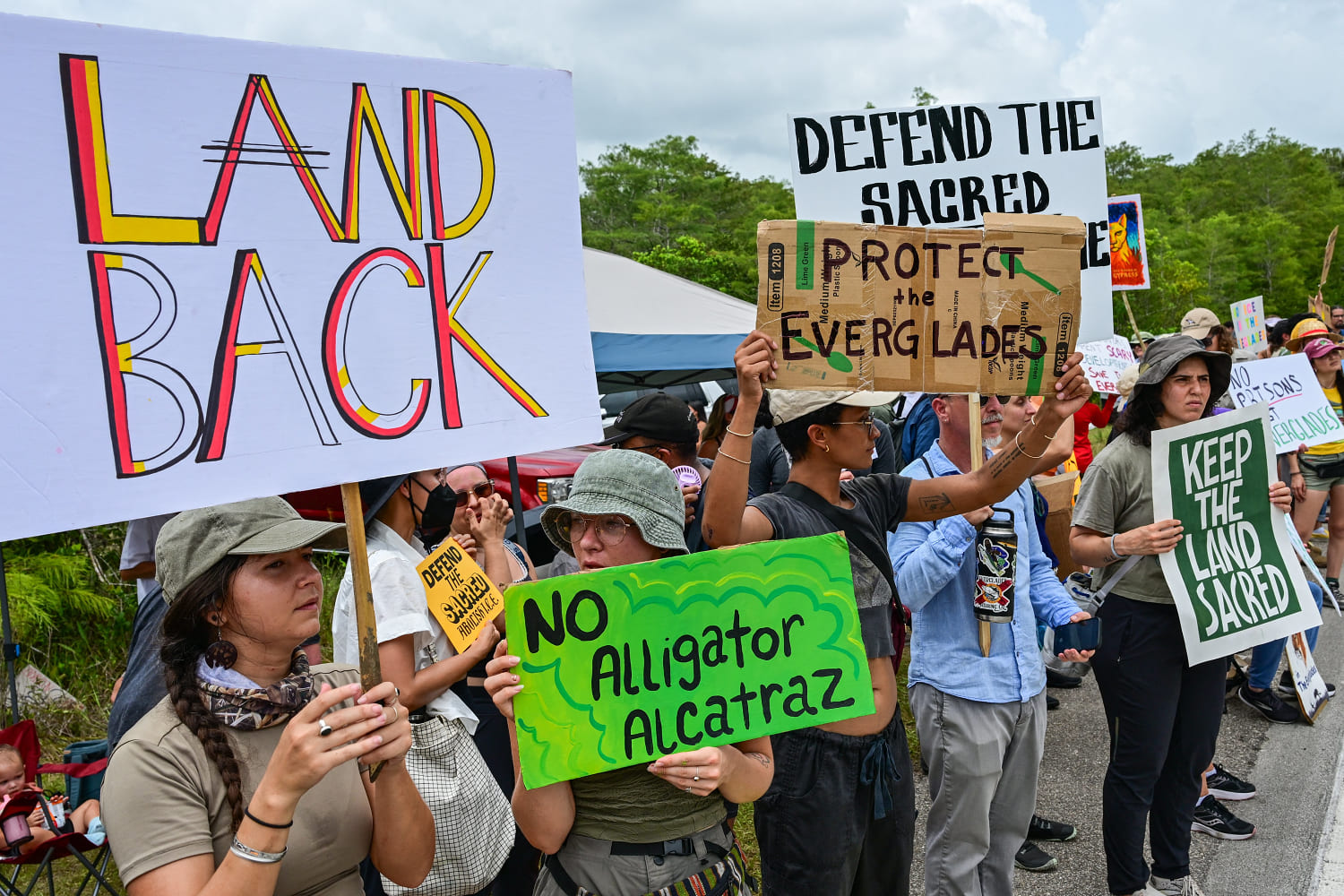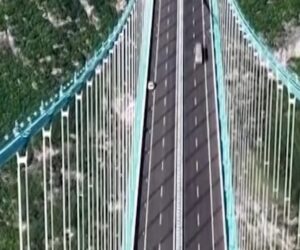
A coalition of groups, ranging from environmental activists to Native Americans advocating for their ancestral homelands, converged Saturday outside an airstrip in the Florida Everglades to protest the imminent construction of an immigrant detention center.
Hundreds of protesters lined part of U.S. Highway 41 that slices through the marshy Everglades — also known as Tamiami Trail — as dump trucks hauling materials lumbered into the airfield. Cars passing by honked in support as protesters waved signs calling for the protection of the expansive preserve that is home to a few Native tribes and several endangered animal species.
Christopher McVoy, an ecologist, said he saw a steady stream of trucks entering the site while he protested for hours. Environmental degradation was a big reason he came out Saturday. But as a South Florida city commissioner, he said, concerns over immigration raids in his city also fueled his opposition.
“People I know are in tears, and I wasn’t far from it,” he said.
Florida officials have forged ahead over the past week in constructing the compound dubbed as “Alligator Alcatraz” within the Everglades’ humid swamplands.
The government fast-tracked the project under emergency powers from an executive order issued by Gov. Ron DeSantis that addresses what he views as a crisis of illegal immigration. That order lets the state sidestep certain purchasing laws and is why construction has continued despite objections from Miami-Dade County Mayor Daniella Levine Cava and local activists.
The facility will have temporary structures like heavy-duty tents and trailers to house detained immigrants. The state estimates that by early July, it will have 5,000 immigration detention beds in operation.
Native American leaders in the region have seen the construction as an encroachment onto their sacred homelands, which prompted Saturday’s protest. In Big Cypress National Preserve, where the airstrip is located, 15 traditional Miccosukee and Seminole villages, as well as ceremonial and burial grounds and other gathering sites, remain.
Others have raised human rights concerns over what they condemn as the inhumane housing of immigrants. Worries about environmental impacts have also been at the forefront, as groups such as the Center for Biological Diversity and the Friends of the Everglades filed a lawsuit Friday to halt the detention center plans.
“The Everglades is a vast, interconnected system of waterways and wetlands, and what happens in one area can have damaging impacts downstream,” Friends of the Everglades executive director Eve Samples said. “So it’s really important that we have a clear sense of any wetland impacts happening in the site.”
Bryan Griffin, a DeSantis spokesperson, said Friday in response to the litigation that the facility was a “necessary staging operation for mass deportations located at a preexisting airport that will have no impact on the surrounding environment.”
Until the site undergoes a comprehensive environmental review and public comment is sought, the environmental groups say, construction should pause. The facility’s speedy establishment is “damning evidence” that state and federal agencies hope it will be “too late” to reverse their actions if they are ordered by a court to do so, said Elise Bennett, a Center for Biological Diversity senior attorney working on the case.








